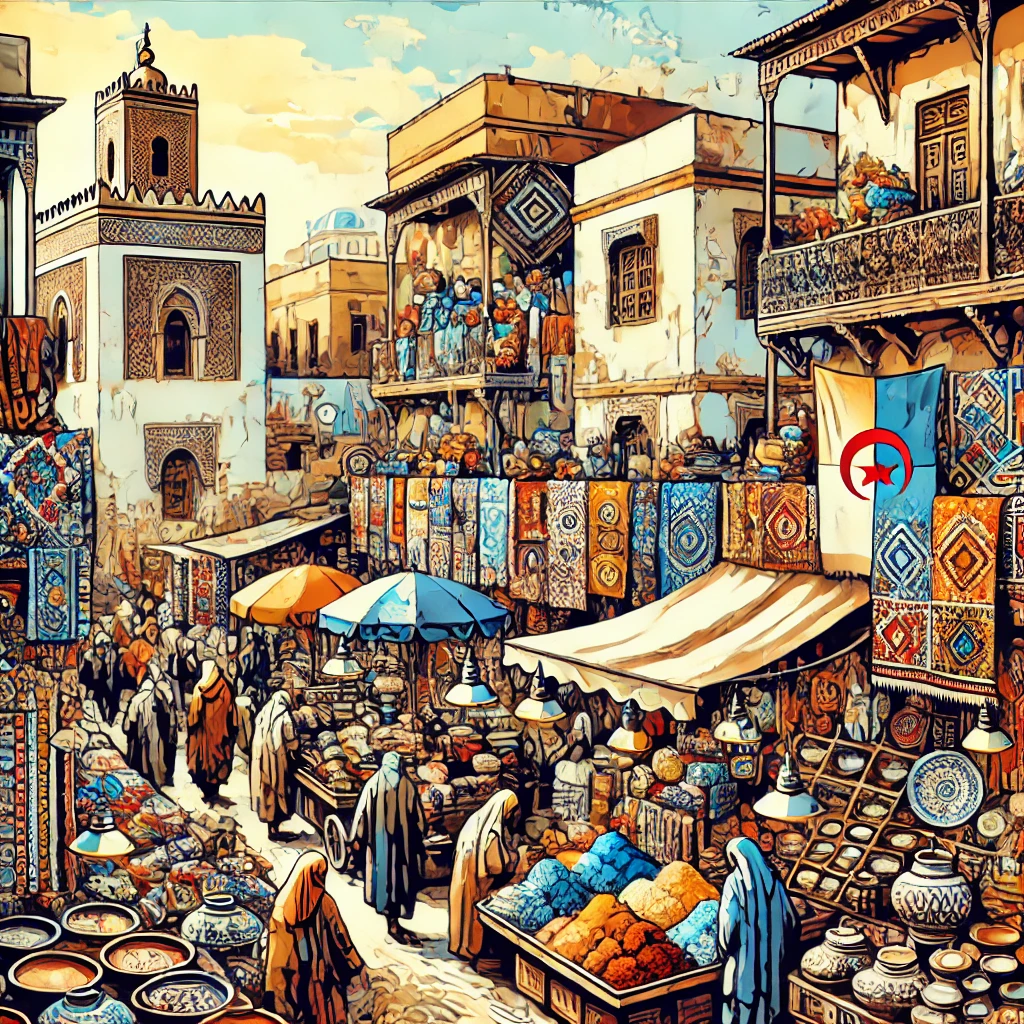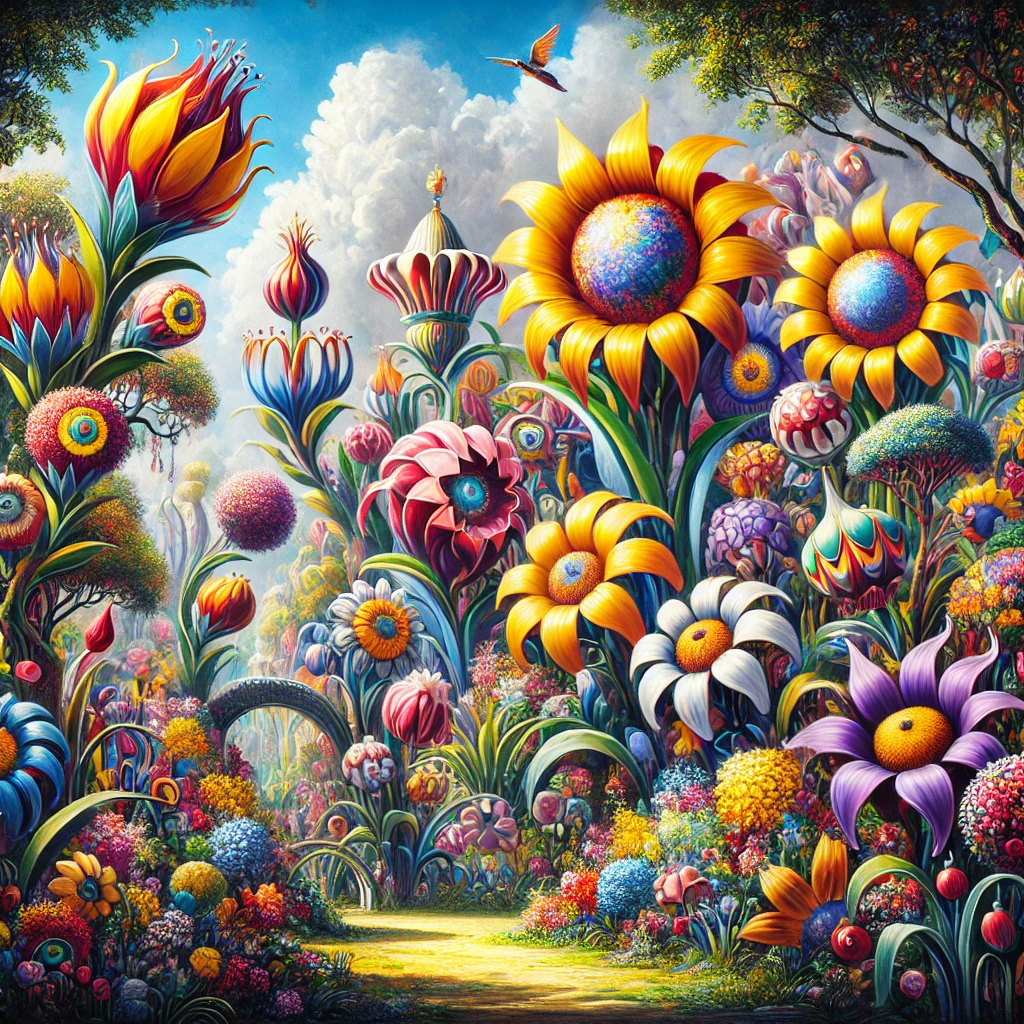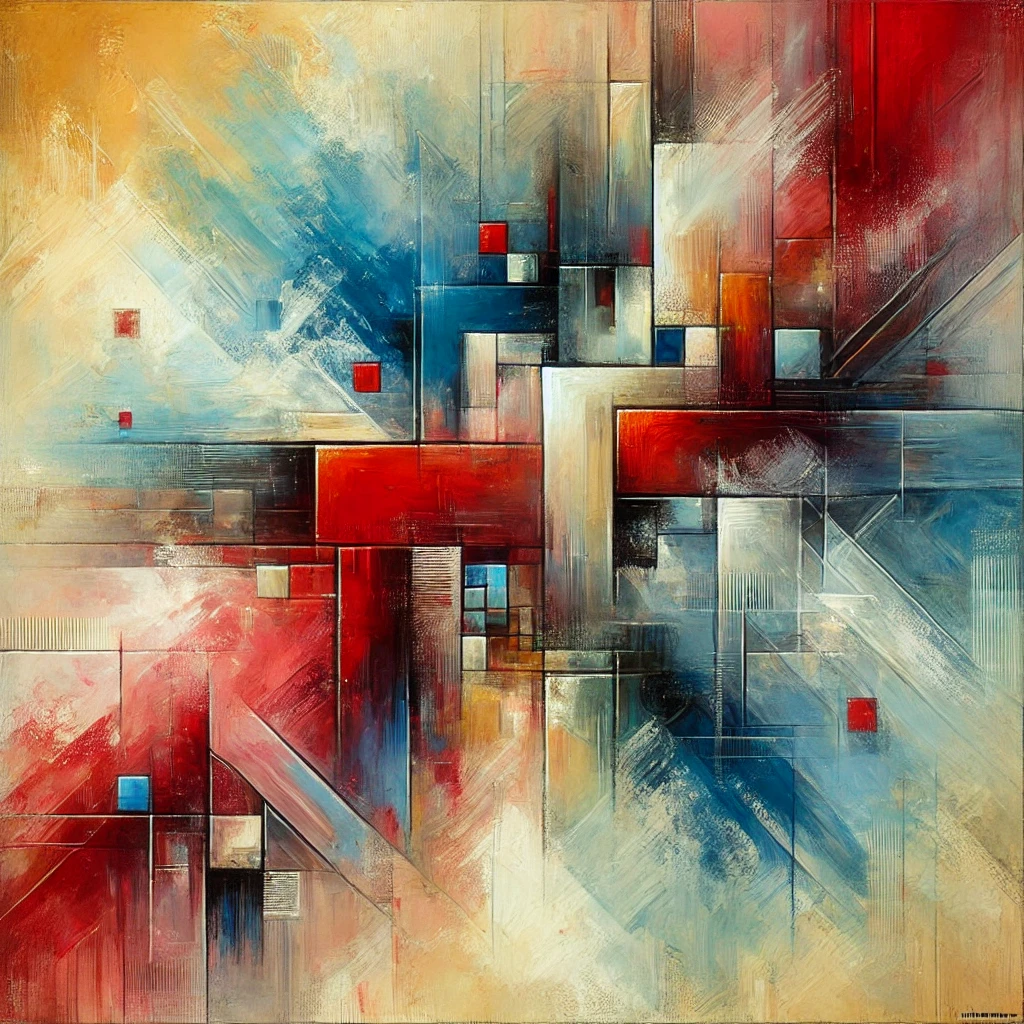Mohamed Khadda is a cornerstone of modern Algerian art. Renowned for his abstract expressions that blend traditional Algerian motifs with modernist techniques, Khadda’s work offers a profound commentary on the cultural and historical tapestry of North Africa.
Early Life
Born in Mostaganem, Algeria, in 1930, Mohamed Khadda was immersed in a world brimming with rich history and diverse cultures. His early exposure to traditional Algerian crafts and French influences during his education in Oran and later Paris shaped his eclectic artistic vision.
Artistic Beginnings
Khadda’s career began with realistic portrayals of daily life, but he quickly established his niche within the nascent Algerian art scene through early exhibitions. His participation in the nationalist movement subtly infused his early works, which garnered recognition for their depth and authenticity.
Development of Style
In the 1960s, Khadda transitioned to abstract art, drawing on Algerian history and symbols to craft a visual language of tradition and modernity. His travels across Europe and North Africa broadened his perspectives and influenced his artistic methodology.
Signature Techniques
Khadda is celebrated for his dynamic use of color and innovative form. He often incorporates calligraphy and geometric patterns into his canvases. His experimentation with mixed media and collage techniques breaks conventional boundaries, making his work distinctive in the Algerian modern art movement.
Major Works and Their Themes
Khadda’s oeuvre includes seminal works such as “Signe et Symboles” and “Homage to Emir Abdelkader,” which reflect his deep engagement with Algerian identity and history. These pieces are visually striking and rich in complex narratives that resonate with cultural significance.
Cultural Impact
Beyond his paintings, Khadda’s role in promoting Algerian art globally and nurturing an appreciation for cultural heritage at home made him a pivotal figure in Algeria’s artistic renaissance. His efforts helped pave the way for future generations of Algerian artists.
International Presence
Khadda’s art found a receptive audience worldwide, with exhibitions in Paris, Moscow, and New York. This international presence helped elevate Algerian art globally, showcasing its unique blend of tradition and modernity.
Philosophical Underpinnings
Deeply philosophical, Khadda’s work explores themes of identity, existence, and the human condition, reflecting his belief in art as a tool for cultural and self-exploration. His abstract pieces often pose existential questions framed within the Algerian context.
Collaborations and Influences
Throughout his career, Khadda collaborated with other artists and intellectuals, enriching his artistic expression and broadening his impact. His interactions with Arab and African artists fostered a dynamic exchange of ideas that enriched the regional art scene.
Teaching and Mentorship
As an educator, Khadda dedicated himself to mentoring young artists, emphasizing the importance of integrating cultural heritage with artistic innovation. His teachings have left an indelible mark on the development of contemporary Algerian art.
Artistic Recognition
Khadda’s contributions were widely recognized and received numerous awards and accolades, affirming his status as a leading figure in the art world. His works are celebrated for their artistic merit and depth, making him a critical figure in the study of modern art.
Later Years and Evolution
In his later years, Khadda continued to evolve his style, increasingly focusing on larger-scale works and public art projects. These last pieces were marked by deeper introspection and continued innovation, reflecting his quest to redefine Algerian art.
Exhibitions and Retrospectives
Khadda’s legacy is preserved through major retrospectives and his inclusion in permanent collections worldwide. These exhibitions offer insights into his artistic journey and the evolution of his style, highlighting his lasting impact on the art world.
Personal Life and Background
Khadda’s personal life, marked by deep connections to his family and homeland, profoundly influenced his art. His experiences and relationships provided a rich source of inspiration, deeply interwoven with his artistic narratives.
Challenges and Controversies
Throughout his career, Khadda faced both artistic and political challenges. His bold approach often sparked debates within the art community, but he remained committed to his vision, using his art to address social and political issues.
Legacy and Continuing Influence
Khadda’s enduring influence is evident in the thriving community of Algerian artists who continue to draw inspiration from his work. His legacy is not only in his paintings but also in his profound impact on Algeria’s cultural identity and artistic direction.
Community and Cultural Engagement
Active in his local community, Khadda’s engagement with cultural projects and initiatives showcased his commitment to using art as a means of social change and cultural preservation. His work with various cultural organizations helped foster a vibrant artistic community in Algeria.
Reflections on His Philosophies
Khadda’s artistic philosophies, characterized by a deep interrogation of self and society, remain relevant. His reflections on the role of art in society and the artist’s responsibility continue to inspire discussions on the power of art to influence and reflect cultural change.
Conclusion
Mohamed Khadda’s artist and cultural icon legacy resonates across Algeria and beyond. His visionary approach to blending Algerian traditions with modern artistic expressions has left a lasting imprint on the art world, making his work a perpetual source of inspiration and admiration.




